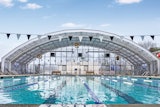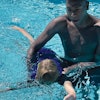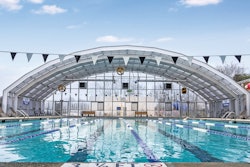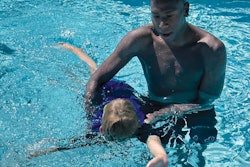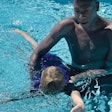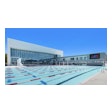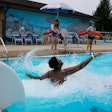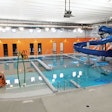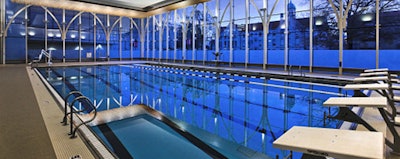
Last week I couldn’t help but notice this year’s Memorial Day observance took place just days after the breaking news about the falsified records scandal at VA hospitals. In a world filled with brutal ironies, that one was a doozy!
Naturally, the timing led to all sorts of political finger-pointing and moral handwringing about how we’re failing in our duty to assist our wounded service people. Although that simple observation is something most people probably believe in, it’s equally apparent that without action, even the most well- intended rhetoric does little, if any good at all.
As is true for many, Memorial Day is a really big deal for my family. My dad is an Air Force Vietnam vet; my stepfather a Word War II Navy vet; and my grandfather served as a Marine in both WWII and Korea. As my thoughts were with these heroes — all of who remain healthfully extant — and their brothers and sisters in arms who haven’t been so fortunate, I realized that the aquatics industry is perfectly positioned to offer assistance in this current crisis of care.
RELATED: Military Veterans Find Success in Fitness Industry
For many wounded warriors, aquatic therapy stands as one of the most effective means of treating both physical and mental injuries. Community aquatic centers, YMCAs, university facilities and others should take the lead in making free access to such facilities for veterans a top priority. And better still, wouldn’t it be great if such facilities programmed use with war-injured veterans in mind? That could be as simple as reserving a couple swim lanes exclusively for vets during certain times, or as involved as bringing in therapists to volunteer their time and services. Facility owners and managers might even consider reaching out to VA hospitals and clinics as partners to make aquatic exercise more readily available to those vets who need it most.
On a purely self-serving level, I can’t think of a more noble or effective way to promote the profound health benefits of water-based rehabilitation. The fact is, catering to our active and retired servicemen and women would be spectacular PR. It’s exactly the kind of exposure our industry needs. Beyond that interest, however, is the reality that opening doors to vets could do genuine good for those who are unfortunately being underserved by the institutions designed to help them.
Keep in mind that our most recent wars in Iraq and Afghanistan have demonstrated how modern medical science can keep severely wounded soldiers alive. Ultimately those advances in lifesaving procedures and technology put more burden and responsibility on society at large to take care of these brave souls as they move forward in their post-military lives or seek to re-enter active duty.
In saying all this, I realize there are already many facilities moving in this direction, and the call to action is being heard across the aquatics industry. In preparing this discussion, I found the following passage in an article on the website for the Aquatic Exercise Association by Will Corley, an undergraduate in the Exercise Physiology program at West Virginia University:
Many different injuries are seen in returning veterans of modern warfare. Since the invasion of Iraq and Afghanistan, 50,420 United States service members have been wounded in action. Injuries range from chronic lower back pain to multiple limb amputations due to the large forces of present day weapons. Cognitive impairments, such as Post Traumatic Stress Disorder (PTSD), can make a veteran’s return difficult as well. These injuries and mental disorders can be managed using aquatic therapy and exercise programs… but are there enough nationwide?
For those owners and managers who might not have given the idea any thought, however, maybe the time is nigh.
For those of us who aren’t in a position to institute such programs, we can always use our voices to support the idea of opening up aquatic centers to vets, free of charge. You might also consider hosting a fundraiser or donating to the Wounded Warrior Project, which is doing important work helping our wounded service personnel integrate into society.
There is always some way you can help.
There is no one-size-fits-all solution when it comes to meeting wounded vet needs. Given the flexibility and power of aquatic therapy, however, our industry is arguably well positioned to offer an important and helpful part of the answer.
Eric Herman is senior editor of AB's sister publication AQUA magazine.









